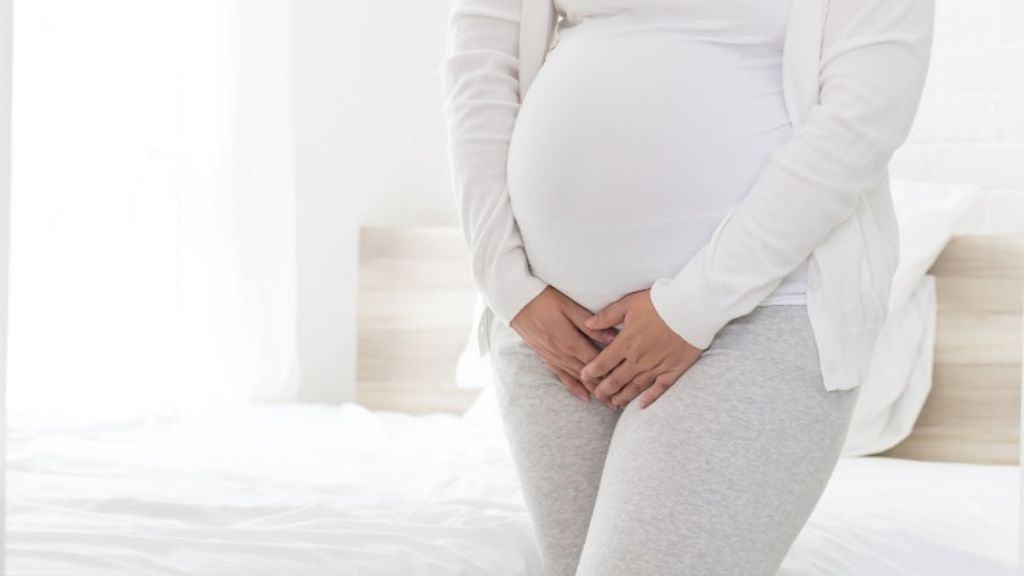
The unending urge to urinate is a common symptom of pregnancy. Especially during the 3rd trimester of pregnancy, this can keep you up at night. We have brought to you the causes, symptoms, diagnosis, and treatment of frequent urination during pregnancy. Read on to know more!
Causes of Frequent Urination During Pregnancy
Increased urinary frequency in pregnant women is caused by two pregnancy hormones:
- Human chorionic gonadotropin (hCG)
- Progesterone
The urinary urge reduces when you reach your 2nd trimester as the uterus is also higher then. This reduces the pressure on your urinary bladder. In addition to the rising pregnancy hormones, a pregnant body’s fluid levels also increase. This means your kidneys have to do a bit of extra work to flush that extra fluid out. The amount of urine in your body also hikes and your trips to the bathroom increase.
In the 3rd trimester of your pregnancy, your little munchkin is growing in size and they press more on the urinary bladder. As a result, you might have to frequently wake up many times during the night to pee. You might also experience increased urgency to pee because of the added pressure.
Symptoms of Frequent Urination During Pregnancy
The feeling of urgency to urinate more often is the primary symptom of frequent urination during pregnancy. Sometimes you might go to the bathroom but pee very little or none at all. Some pregnant women also experience urinary leakage when they
- Sneeze
- Laugh
- Exercise
- Cough
Sometimes frequent urinary symptoms could indicate a urinary tract infection (UTI). women are very likely to have a urinary tract infection during their pregnancy. Its symptoms include:
- Pain while peeing
- A burning sensation while urinating
- Passing foul or strong-smelling urine
- Passing concentrated, pink, or red urine
- Passing cloudy urine
To treat UTI you need to get in touch with a doctor as it could progress up your urinary tract if left untreated.
Diagnosis of Frequent Urination During Pregnancy
Doctors can diagnose urinary urgency and frequency by inspecting your symptoms. They will do so by asking questions like
- How often do you go for a bathroom trip
- How much you urinate on each trip
- If you have any symptoms of UTI, etc.
If you are unsure of the symptoms, they will ask you to maintain a journal answering the above questions. They may also order diagnostic tests such as
- Cystoscopy: This test involves inserting a lighted, thin scope into the urethra and examining the urethra and the bladder with a camera attached to the scope.
- Bladder stress test: This procedure involves measuring how much urine is leaking when you bear down, cough, or sneeze.
- Ultrasound: This process identifies any abnormalities in your urethra, kidneys, or bladder.
- Urinalysis: This test is for figuring out if your urine is infected with bacteria.
Treatment of Frequent Urination During Pregnancy
Frequent urination in pregnancy resolves on its own after childbirth. Its symptoms last for about 6 weeks after giving birth if any. Your healthcare provider will recommend strengthening exercises for your bladder known as Kegels. These are exercises aimed at improving the strength of your pelvic floor and gaining better control of your urine flow.
You may perform these exercises every day (ideally, thrice a day). Here’s what you can do:
- Tighten your pelvic floor muscles as if you are trying to stop peeing.
- Hold the muscles for 10 seconds (or as long as you can)
- Release the contracted muscles.
- Repeat the above steps 15 times to complete a cycle.
Closing Thoughts
To prevent frequent urination during pregnancy, you can follow these tips even though preventing it completely is impossible as your growing baby will put pressure on your other organs:
- Regular Kegels exercises
- Reducing caffeine intake
- Journaling your urinary timings
- Peeing before the recorded timings
- Leaning forward while urinating to empty the bladder better










